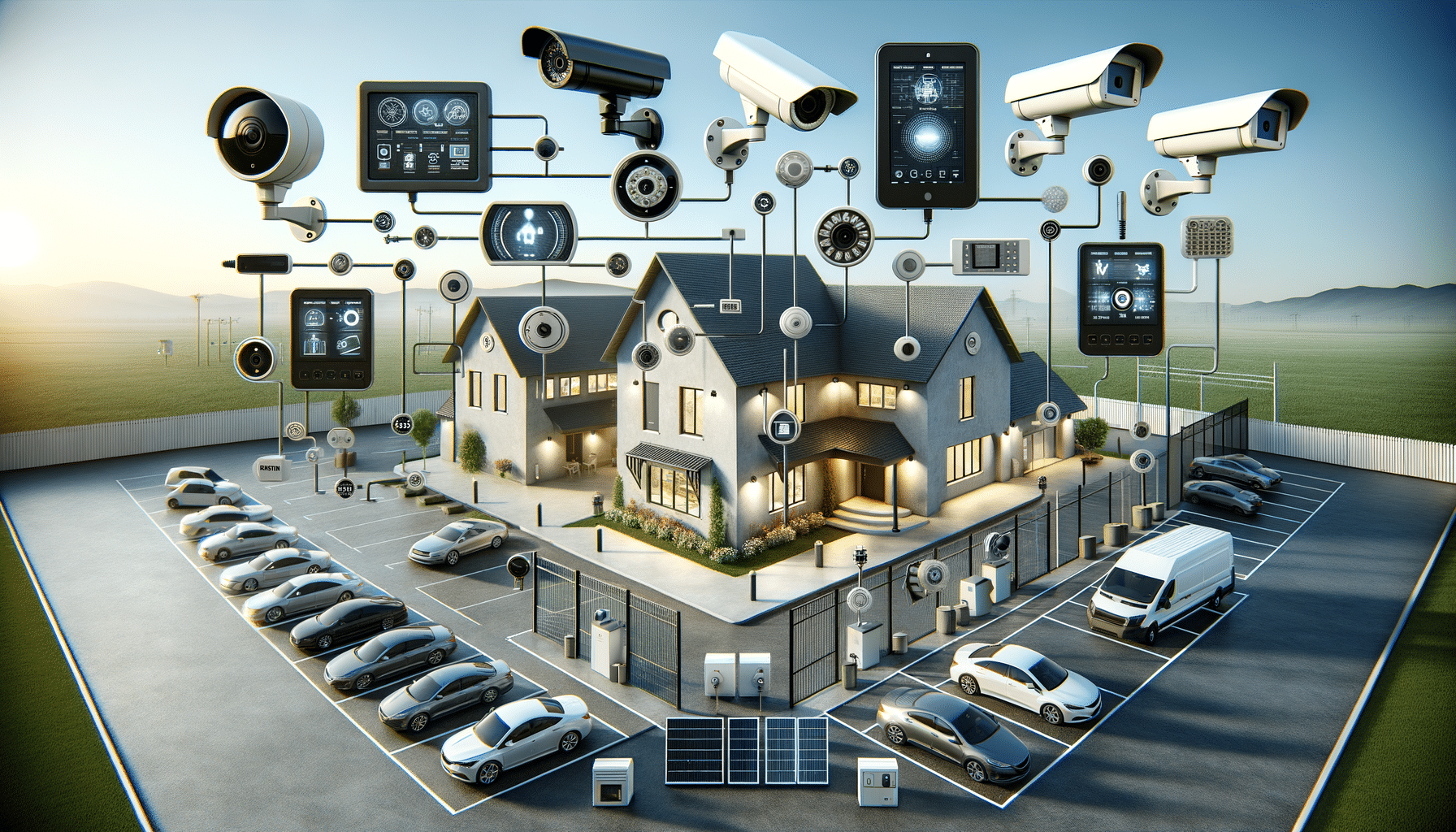
Enhance Property Protection with State-of-the-Art Surveillance Technology
Introduction to Security & Surveillance Cameras
In today’s world, ensuring the safety and security of our homes and businesses is a top priority. Security and surveillance cameras have become indispensable tools in achieving this goal. They not only deter potential intruders but also provide valuable evidence in case of any incidents. With advancements in technology, modern surveillance systems offer a wide range of features that cater to various security needs, making them an essential component of property protection strategies.
Types of Security Cameras
Security cameras come in various types, each designed to serve specific purposes. Understanding these types can help in selecting the right system for your needs:
- Bullet Cameras: Known for their long and cylindrical shape, bullet cameras are ideal for long-distance viewing. They are often used outdoors due to their protective casings.
- Dome Cameras: These cameras are housed in a dome-shaped casing, making them less obtrusive and suitable for indoor use. Their design allows for wide-angle coverage.
- PTZ Cameras: PTZ (Pan-Tilt-Zoom) cameras offer flexible monitoring with the ability to pan, tilt, and zoom in on specific areas. They are perfect for covering large spaces.
- Wireless Cameras: As the name suggests, these cameras operate without wires, making them easy to install and relocate. They are ideal for both indoor and outdoor use.
- Hidden Cameras: Designed to be discreet, hidden cameras can be integrated into everyday objects, providing covert surveillance.
Choosing the right type depends on factors like the area to be monitored, lighting conditions, and specific security requirements.
Key Features of Modern Surveillance Systems
Modern surveillance systems come equipped with a host of features that enhance their effectiveness. Some of the key features include:
- High-Resolution Imaging: With advancements in camera technology, high-resolution imaging ensures clear and detailed footage, crucial for identifying individuals and objects.
- Night Vision: Infrared technology enables cameras to capture clear images even in complete darkness, making them ideal for 24/7 surveillance.
- Motion Detection: This feature triggers recording only when motion is detected, saving storage space and making it easier to review footage.
- Remote Access: Many systems offer remote access through mobile apps, allowing users to monitor their property from anywhere in the world.
- Two-Way Audio: Some cameras come with built-in microphones and speakers, enabling communication between the camera and the person being monitored.
These features not only enhance security but also provide convenience and peace of mind to users.
Installation and Maintenance Tips
Proper installation and maintenance are crucial for the optimal performance of surveillance systems. Here are some tips to consider:
- Strategic Placement: Cameras should be placed at entry points, high-traffic areas, and other vulnerable spots to maximize coverage.
- Regular Maintenance: Routine checks and maintenance ensure that the system is functioning correctly. This includes cleaning lenses, checking connections, and updating software.
- Professional Installation: While DIY installation is possible, professional installation guarantees that the system is set up correctly and efficiently.
- Weatherproofing: For outdoor cameras, ensure they are weatherproof and can withstand environmental conditions.
- Secure Network: For wireless systems, securing your network with strong passwords and encryption is vital to prevent unauthorized access.
By following these tips, you can ensure that your surveillance system operates effectively and provides reliable security.
Conclusion: Enhancing Security with Surveillance Technology
Security and surveillance cameras play a pivotal role in safeguarding properties. By understanding the different types of cameras, their features, and proper installation practices, you can choose a system that meets your specific security needs. With the right surveillance technology, you can protect your property, deter potential threats, and gain peace of mind knowing that your assets are secure. As technology continues to evolve, staying informed about the latest advancements will help you make informed decisions and enhance your security measures.


